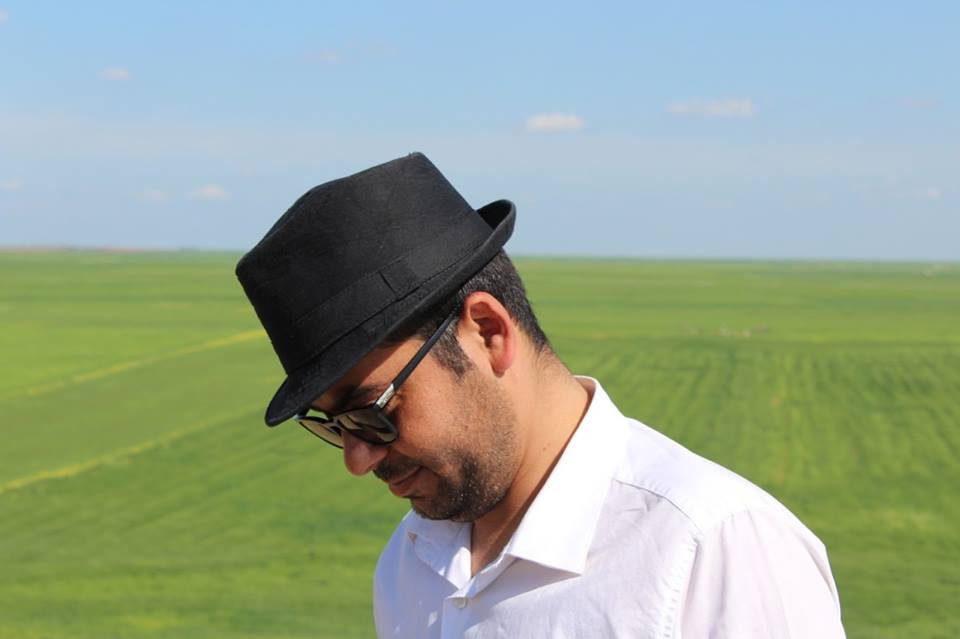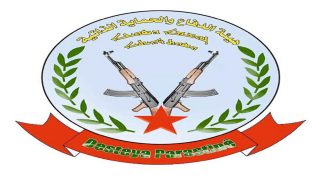(Al-Qamishli) United State President Donald Trump’s decision to withdraw American troops from Syria came as even more of a surprise to his allies than his enemies. The decision comes three years after the establishment of the US-led Global Coalition To Defeat ISIS.
The coalition’s main partners on the ground are the Syrian Democratic Forces (SDF), the backbone of which is the Kurdish People’s Protection Units (YPG). Syrians residing in the north and northeast of the country are still reeling with shock. The U.S. withdrawal puts them in front of some tough choices to avoid the worst possible scenarios.
The Kurds between Erdogan’s Hammer and Bashar’s Anvil!
Most residents in northeast Syria concur that the biggest losers from this American withdrawal are the Kurds, who fought bloody battles alongside the global coalition against the Islamic State group, incurring thousands of casualties.
“Trump left the Kurds between Erdogan’s hammer and Bashar’s anvil,” says Shams Antar (50), a writer and women’s rights activist from Al-Qamishli.
“Syrian civilians will be the most affected and particularly Kurds, as most American military bases are located in areas that are under the control of ‘Democratic Syria’”, she notes. “[This] provides a new opportunity for ISIS to revive and launch a new attack against the SDF.”
In order to avoid military intervention by Turkey, Antar says the SDF and the Syrian government will reach a deal. That outcome will be a disappointment for the Kurds “who had once believed that there are countries that could help the oppressed peoples’ emancipatory movements.”
For his part, Aram Shavarshian, an Armenian journalist who works for the local radio station Arta FM, hopes that the “the self-governing administration finds new allies such as France” in order to avoid “negotiating with the Syrian regime.”
The French forces are part of the Global Coalition to Defeat ISIS and some of them are present in Manbij, a city to the west of the Euphrates. After the US withdrawal decision, the French government announced that will remain part of the global coalition. There are only 50 French soldiers in the area, according to a Turkish newspaper, Hurriyet.
Shavarshian considers the American withdrawal as a tactical move and believes the US will return to its prior role after completing the Patriot missiles deal with Turkey.
In northeast Syria the population includes Syriac, Arabs and Kurds. These constituents share different percentages of the self-governing administration that was established on 21 January 2014, and they became a military force with thousands of fighters in the SDF, which controls about one-third of Syria.
Batman al-Assaf (32), an Arab political researcher in Al-Qamishli, believes the US withdrawal decision was not as impulsive as it came across. Trump had taken his decision months earlier, already announcing the withdrawal of troops from Syria last March.
Assaf says “the US greatly reshuffled the cards in the region” and is attempting to instigate a competition between Turkey on the one hand, and Russia and Iran on the other. “We will, therefore, witness perhaps new and unexpected deals with dramatic implications on the field East of the Euphrates,” he told SyriaUntold.
The outcome, he notes, also depends on the agreement made between the Syrian government and the SDF.
US interest above all other considerations
The Syrian Democratic Council, the political wing of the SDF and the self-governing administrations in the North and East of Syria, issued a statement on December 20, 2018 warning against the dangers of this withdrawal and its implications for the entire region. They vowed to continue to “defend the rights and gains of the people and to resort to peaceful national political solutions.”
In its first reaction to the American decision, the SDF considered the US’s withdrawal as a betrayal and stab in the back.
Faysal Youssef (64), the general coordinator of the Kurdish Reform Movement, a movement under the opposing Kurdish National Council, told SyriaUntold that the US “puts its own interest above all ethical considerations” and “it is counting on satisfying and resolving its disputes with Turkey, without proposing any political solution that guarantees stability and security.”
Turkey is the second most powerful army in the North Atlantic Treaty Organization (NATO) and a historical ally for the United States in the Middle East.
Youssef is worried about the future of the region if a realist solution to the current crisis cannot be found.
“If the US decision is executed, this will create a void that frightens people,” he says. “On one side there is Turkey with its threat of intervention, and on the other, the regime and its allies, without there being an alternative that reassures people about their lives and belongings and protects them from the negative implications of the decision.”
The Kurdish National Council, which has the support of Iraq’s Kurdish Regional Government and is part of the Turkey-based National Coalition of the Revolutionary and Opposition forces in Syria, condemned the Turkish threats in a statement issued on December 23, 2018. It demanded the coalition forces and the international community to “bear its responsibilities towards the people of the region” and stressed the “importance of a unified Kurdish stance.”
The council is considered the main opposition force against the self-governing administration and has large numbers of supporters in the Syrian Kurdish and Arab street.
On the future of the region and the Kurdish situation, Youssef emphasized the importance of addressing the negative implications and losses. “It falls on the dominant Democratic Union Party (PYD) to take the initiative to resolve the current disputes.”
PYD official Sihanok Dibo told SyriaUntold in an email that the US never stopped its efforts to “find an alternative to the SDF” but did not succeed in that front. He stressed that the SDF never looked at itself as a rifle in someone else’s hand, and was publicly a partner in the Global Coalition.
The Democratic Union Party, or PYD, is one of the most prominent Kurdish Syrian parties. It has spearheaded the project of self-governance in northeast Syria. Ideologically, it follows the Kurdish leader Abdallah Ocalan who is spending a life sentence in prison in the Turkish island of Imrali.
Dibo underscored the path of resistance as a viable option. “From this resistance, there is diplomacy that always leads to solutions that benefit everyone,” he observes.
Mariam Ali (42) is a housewife who has a son in the Kurdish People’s Protection Unit (YPG). In an interview with SyriaUntold, she fretted over the fate of her son and his comrades, fearing a repeat of the Afrin scenario. Turkey in March seized the northwestern region of Afrin with the pretext of expelling the YPG, a group it considers a terrorist organization linked to its own Kurdish insurgency.
“My son sacrificed everything he has for his homeland,” she says. “Now the officials should protect the souls of my son and his comrades, as well as the souls of the people. We are worried about acts of revenge by Turkish forces and their allies who violated Afrin.”
An unreasonable decision
Walid Jolie (45), a researcher at the Euphrates Research Center, says the decision to withdraw hurts the global standing of the United States, even more than it hurts the Kurds. “The US leaving Syria without any tangible results means they lost the entire region, and therefore losing their role as leaders of the world,” he said in an interview with SyriaUntold. “This cannot be reasonable.”
On the impact of the decision on the Kurdish situation, Jolie says, “the decision to withdraw will mean opening the door for the Kurds to form new alliances that allow them to preserve the project of self-governance, and the choices inside Syria and in the region, and even internationally.”
Different news reports have revealed ongoing meetings between the Syrian Democratic Council, the Syrian government and Russian officials. Meetings have been held in Moscow and Damascus and the Russian Hmaimim base in Lattakia in a bid to reach an agreement that stops Turkish threats of a military operation east of the Euphrates.
Pierre Rustom (55), an opposition writer, said in an email to SyriaUntold that all that matters to the Trump administration is “a quick win in the shortest time possible” as they are being coerced by the countries in the region, particularly the Arab Gulf countries, on top of which being the Kingdom of Saudi Arabia.”
The US president had announced that Saudi Arabia had agreed to spend the necessary money to fund reconstruction efforts in Syria.
Rustom adds that the Trump administration, and because of its interests and the interests of its friends and allies in the region, are forced to be patient and not to completely withdraw from the Middle East, “but this withdrawal may be partial in order to put pressure on the countries in the region to pay their dues, and so that regional and local forces find a political solution,” he adds that regional
Rustom calls for being rational when interpreting these changes so that realistic solutions can come out of them. “This latest catastrophe will force everyone to reinterpret their positions and political projects, looking for agreed upon solutions, he said. “Without that there is no future for anyone in the region. It is time for the homeland to be for everyone.”





